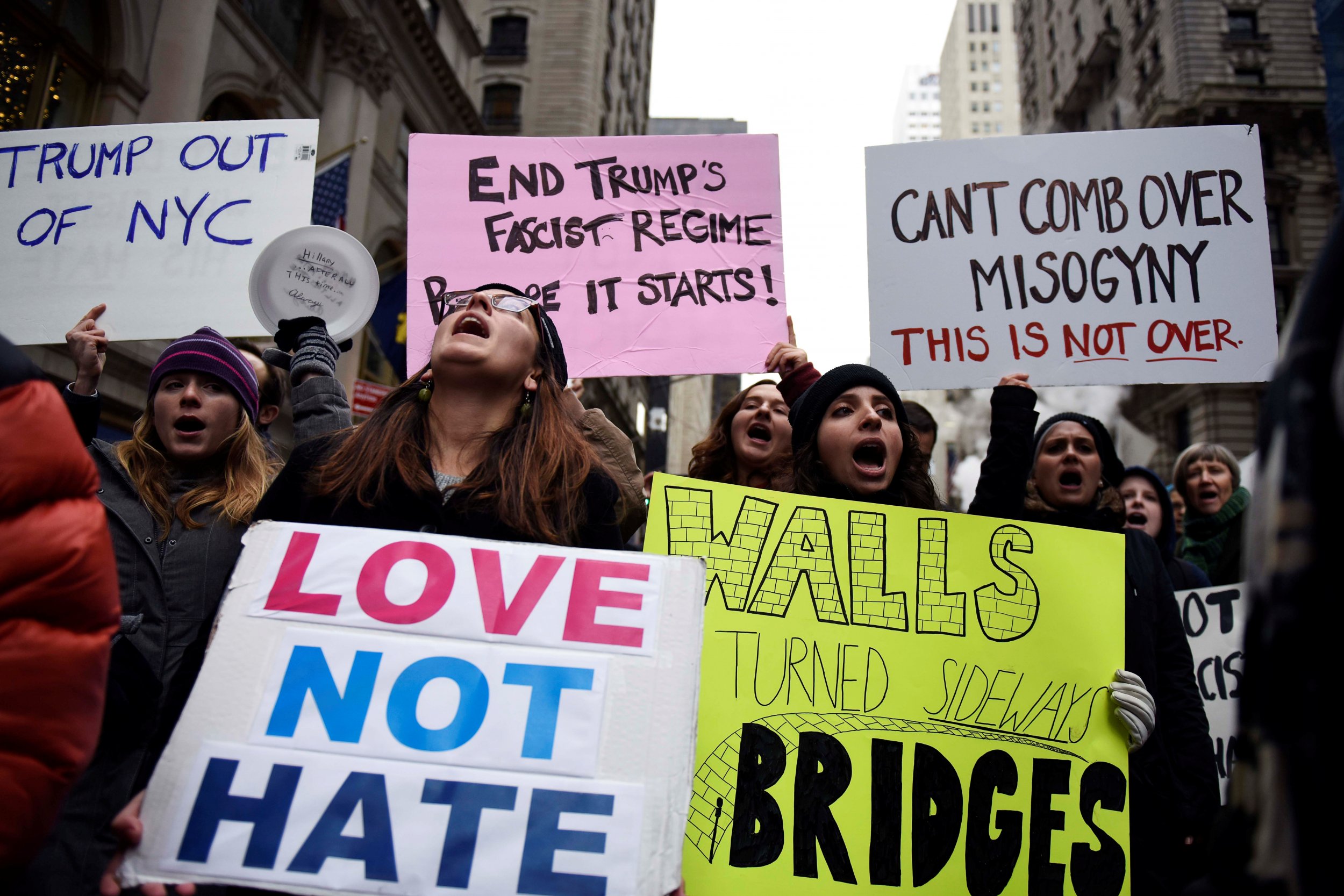
In a previous article I described arriving in Washington, D.C. from my home in London just days after Donald Trump's triumph at the polls, and finding the atmosphere reminiscent of The Night Of The Living Dead. People who ordinarily walked briskly past the city's majestic monuments, were dragging their feet instead. Eyes that had blazed with ambition and aspiration were hazy with disbelief, doubt and despair. Every conversation I overheard seemed to concern loss—of work, of opportunity, of hope.
Throughout that first week, my meetings were entirely consistent with what I observed occurring around me. My friends and colleagues were all but immobilized by a mixture of shock, grief and anger. All had thought they were part of a legacy-making generation, one that would leave our country greener, smarter, more inclusive, more prosperous, more equitable at home and abroad.
When contemplating the implications of Trump's victory for everything they had done and had hoped their successors would continue to do, they would slump over their rapidly cooling coffee, and say only that they wished it would all go away.
But then there was a shift. Subtle and barely perceptible at the start, it was heralded by a handful of journalists—notably The New Yorker 's editor David Remnick, and the editor of the Slate Group, Jacob Weisberg—who challenged their colleagues and their readers to resist "normalizing" Trump. They were calling for active vigilance—a form of persistent resistance that requires each of us to make a conscious effort to fight the all-too-human impulse to acclimate and ultimately accept a "new normal."
Related: The Challenge of Giving Thanks in Donald Trump's America
We must, Remnick and Weisberg rightly insist, maintain an unaccustomed level of discomfort in doubting everything we hear, including refusing to accept as news anything that the president-elect has tweeted.
Truth as determined by verifiable facts must be all that concerns us. More often than not, whatever Trump says in his one-way Twitter conversations with us is a lie. The "fact" that he has said something is not newsworthy in itself. What might be newsworthy is analyzing the agenda behind his lie, and the extent to which it deviates from the facts.
This call for vigilance against normalizing Trump seems to have inspired yet another kind of resistance.
After spending several days worried about the fate of the U.S.' poor and marginalized people, many of my friends and acquaintances are rallying to help them.
People who have been making good use of government funding—for example, those who had won federal grants to pursue projects beneficial to the poor—have started seeking independent sources of funding to continue the work they've been doing under the Obama administration.
Other people are setting up NGOs to continue to help demographics that the Trump government could neglect. Members of the outgoing administration's diplomatic corps are offering to advise civic groups concerned about the direction our foreign policy will take under a president-elect who has substantial overseas business interests—many with evident conflicts with the U.S.' strategic interests.
Similarly, people who have spent the past eight years pursuing a progressive agenda in federal departments concerned with justice, clean energy and public health have been making themselves available to advocacy groups and start-ups to persist with work they would have continued to champion in Washington.
Civic organizations concerned with everything from civil liberties to immigrant rights to climate change are forging new coalitions, coming together in other words, to resist and persist.
The Washington I left a few days ago felt much different to the one in which I had arrived three weeks before. This is not to minimize the unprecedented threats to my country that Trump's inauguration poses, but if the poet William Butler Yeats had been there to observe the shift among the people I met from catatonic to resolute, I think his conclusion might have been the inverse of the oft-quoted line from his apocalyptic poem The Second Coming. It is the best who are filled with passionate intensity.
Diana Shaw Clark has lived in London for 17 years. She has spent her time in the British capital organizing Americans living abroad in support of Democratic party candidates.
Uncommon Knowledge
Newsweek is committed to challenging conventional wisdom and finding connections in the search for common ground.
Newsweek is committed to challenging conventional wisdom and finding connections in the search for common ground.





